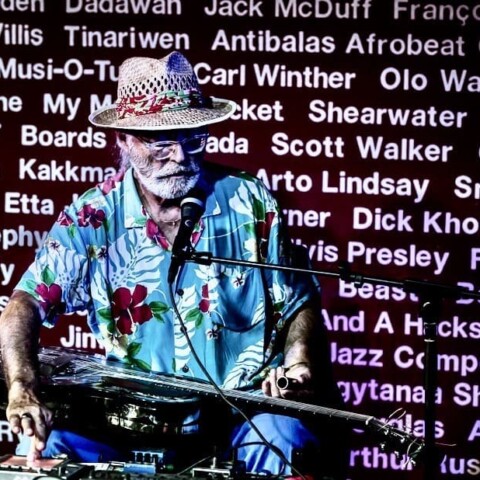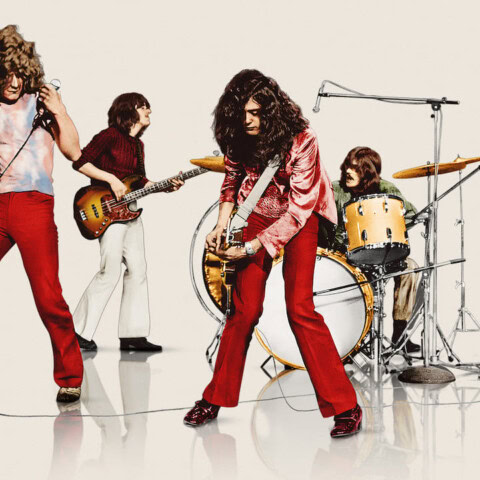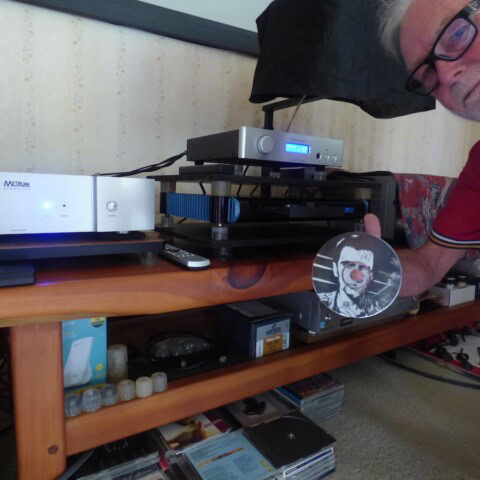The idea? Every day in May, to mark NZ Music Month and the new AudioCulture archive, Gary Steel would present something local from his considerable behind. Personal archive, that is. Except that mysteriously, it didn’t quite happen every day. There were only 28 entries for a 31-day month. So belatedly, the old tardy bastard will in the next three days – whether you like it or not – provide another three pieces. Today’s surprise?
Wayne Mason
First published in the Strip, June 1996.
The Mason Legend
 HE’S A LIVING legend. It’s just that nobody knows it yet.
HE’S A LIVING legend. It’s just that nobody knows it yet.
Wayne Mason leans back on the sagging couch of his budget Herne Bay motel and belts out a hearty guffaw. I’ve just described the chronic lack of acknowledgement of our pop heroes as a ‘collective amnesia’, and Wayne is rolling in the aisles. The thing is, by all rights, the bloke should be wracked with grief and bitterness. His list of firsts and all-round accomplishments on the Kiwi rock scene must have guaranteed him a place in the Kiwi Hall Of Fame, surely.
Umm… Wayne who? Wayne Mason was the keyboardist and chief songwriter for NZ’s biggest pop group of the ‘60s, The Fourmyula.
This Upper Hutt band had more consecutive top 10 hits between 1968 and 1970 than any other local band before or since. Even more remarkable for an era when it was expected of local groups that they cover the songs of overseas performers, The Fourmyula wrote their own songs. Great songs, they were too; cheesy but timeless pop classics, culminating in the evergreen Wayne Mason composition, ‘Nature’ – a song which hit the number one spot again a couple of years ago when The Muttonbirds covered it. There’s more: The Fourmyula were the first New Zealand band to make a serious go of England, years before Split Enz, and they were the first to bring back hippy hair, mega-loud Marshall stacks (big PA systems), and heavy metal riffery to shock the locals.
Wayne went on to develop his songwriting talent with successful country rock group Rockinghorse in the ‘70s (their ‘Southern Moonlight’ is a Kiwi classic), performing with artists like Sharon O’Neill and Jon Stevens. In the ‘80s, he joined good-time band The Warratahs, whose run of popularity lasted nigh on a decade. Now, always one of our finest songwriters, Wayne Mason has finally shrugged off the anonymity and ongoing compromise of group activity, for his turn in the spotlight. His first solo album, Between Frames, is the reason he’s left his Paekakariki beach idyll for a whack at the Queen city.
Wayne – now in his mid-40s – is weathered, but still youthful, which matches the battered dignity of the music on his album. Already lavished with critical praise, the CD contains a finely wrought collection of barrel-fermented sounds and oak-aged sentiments. The Warratahs this is not.
That band started as a bit of a lark for Wayne, a bit of light fun on the side. However, the darkness inside just had to get out – eventually.
“We’d be playing along in the Warratahs, all happy and bouncy, and then I’d play one of my songs and everybody would get depressed,” he says.
You see, Wayne just loves songs about depressing situations, and has willingly experienced life’s bumpy road to get the full creative mileage out of his emotional dusting.
“There’s a bit of joy there, but the songs are quite dark,” he says. “I was trying to describe dislocation, isolation, loneliness, being strung out and far from home. A lot of it is internal landscapes. I was trying to describe what I was feeling, using imagery and imagination and real life stuff, and mixing it all together.”
The biographical chronology is unimportant.
“I have even used the energy of emotional distress from 15 years ago. I’ve just written a song that uses a relationship from the ‘80s which went terribly awry. People say ‘time heals’, but I know that very often the layer is very thin – you just have to scratch it and a whole lot of magma comes out.”
Wayne doesn’t rate his work with Rockinghorse, simply because he was too happy, too stable, too “in control” at the time, to get the creative juices flowing.
 “After you destabilise,” says Wayne, “you just can’t stand the sanity of being well-adjusted. You just want to be completely destroyed by it. There’s a fine line between going right over the top and making your life REALY bad, and recovering. You can’t just keep going down-down-down, because when you get too down, you can’t write; but when you’re down you write poems, and when you start recovering, you feel like playing, and that’s when it comes together (lyrics and music).”
“After you destabilise,” says Wayne, “you just can’t stand the sanity of being well-adjusted. You just want to be completely destroyed by it. There’s a fine line between going right over the top and making your life REALY bad, and recovering. You can’t just keep going down-down-down, because when you get too down, you can’t write; but when you’re down you write poems, and when you start recovering, you feel like playing, and that’s when it comes together (lyrics and music).”
Although Between Frames deals with some dark subjects, it’s more often truly poignant than merely depressing, working as a perfect vehicle for the real Wayne Mason to present himself.
“I made a decision to write for myself, rather than for a band or a style; something that speaks to me. Maybe if you’re young, you might think my album doesn’t really speak of sex or action, which is what you do when you’re young. Music culture is severely loaded towards direct sexual innuendo, and that’s great – it’s a part of the picture – but it’s also a shame, because people need a bigger picture.
“The business is incredibly ageist. There is an audience out there for what I’m doing, but it’s hard to get across to them, because radio is geared either to a ‘classic rock’ audience or is totally youth orientated. There’s not much out there for the people who fall down the cracks. My 17-year-old son, who listens to a lot of stuff that’s current and likes a lot of variety, doesn’t get catered for either. It’s the lack of difference that’s stultifying.”
If there’s a battle ahead for Wayne, it’s getting over the indifference of a music industry geared towards youth and niche markets. He is disqualified on both counts: He’s an old bugger, and the songs he writes are beautiful composites of all his influences, not a tidy, easy-to-market category. The industry which Wayne Mason helped to create hasn’t shown him much interest this time round, so he did it all himself: The album is on his own label, and is distributed by a Wellington mail order company, through specialist shops.
 “It’s tough, because the record companies, radio and TV are all in a loop, and that loop is very restrictive. If you’re outside that loop, the resources are not there, shops won’t buy the records, and TV won’t play the videos, so it’s hard to generate the necessary profile.”
“It’s tough, because the record companies, radio and TV are all in a loop, and that loop is very restrictive. If you’re outside that loop, the resources are not there, shops won’t buy the records, and TV won’t play the videos, so it’s hard to generate the necessary profile.”
However, don’t get the idea Mason is whingeing. It takes quite a bit of provocation before he will aim criticism at anyone. In fact, he’s surprisingly positive:
“The thing that makes me feel really good,” says Wayne, “is that I believe these are the best songs I’ve ever written, and my performance and singing is better than ever. It’s a bit unusual. You usually start with a hiss and a roar, and gradually wilt as you get to your 30s and your energy runs out. It’s embarrassing that it’s taken so long to find ‘me’. In other fields – writing, painting – you can start at middle age, because you’ve still got something to say as a human being. Pop music is a young person’s culture, but I know I’ve got more to say now than when I was 18 or 19.” GARY STEEL
Wayne Mason Facts
• Wayne has had 11 top 10 hits, more than any other New Zealand songwriter.
• The first song Wayne wrote – ‘Come With Me’, for the Fourmyula – was only prevented from reaching the number one spot in 1968 by The Beatles’ ‘Hey Jude’. Two years later, The Fourmyula actually got to meet the Fab Four when they were recording an album at England’s Abbey Road studios. The Fourmyula album never got released, while the concurrent Beatles production was their swansong, Abbey Road.
• ‘Hands On My Heart’, the Warratahs anthem, was written by Wayne, but his nomination for all time best self-penned tune is the b-side of Annie Crummer’s new single, ‘Leningrad’.
• The epochal Kiwi evergreen, ‘Nature’, was originally rejected – by Wayne himself. The other band members didn’t know what to make of it and it was scrapped before the group headed for England. Luckily, the group’s producer retrieved it. The Fourmyula returned from the UK to find ‘Nature’ was at the top of the Kiwi charts.
Note from the author: It’s interesting how many of Mason’s comments about the music industry remain true, and pertinent, 16 years later.















